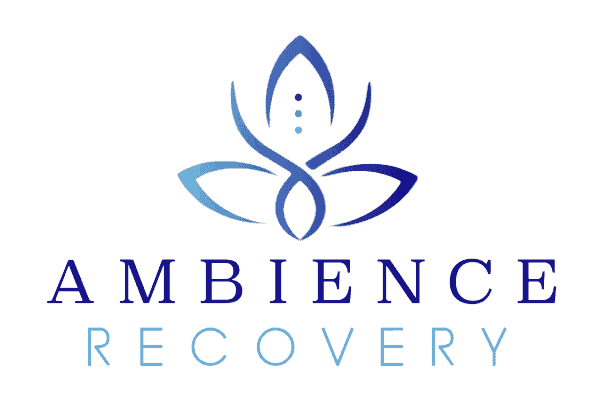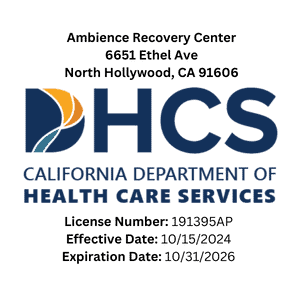How the Right Rehab Can Be Life-Saving
Key Takeaways
| Personalized Treatment Increases Success | Tailored rehab programs address individual needs, making recovery more effective and reducing the risk of relapse. |
| Qualified Staff Ensures Safe Recovery | Experienced medical professionals provide essential care, especially during detox, minimizing health risks and supporting long-term sobriety. |
| Dual Diagnosis Treatment is Essential for Mental Health | Treating co-occurring mental health disorders alongside addiction is crucial for individuals facing both challenges. |
| Aftercare is Key to Preventing Relapse | Ongoing support through therapy and counseling after rehab helps maintain sobriety and tackle life’s challenges. |
| Environment and Specialized Programs Matter | Proper environment and specific programs for specific populations like veterans or the LGBTQ+ population enhance recovery. |
The way to recovery from addiction is often the only way to save one’s life. However, not all rehabilitation programs are the same, and one must be very careful to ensure one gets the right one, as the wrong one could be disastrous. It is therefore important to choose the right rehab center that will help in the achievement of better sobriety, mental health, and the future. This article aims to explain why it is crucial to choose the right rehab program and why choosing the wrong one can be deadly.
Understanding Residential Treatment
Residential treatment is a type of inpatient care that provides 24-hour supervision and monitoring in a non-hospital setting. It is aimed at providing an intensive therapeutic environment for clients with mental health and/or substance use issues. Residential treatment programs offer personalized, clinically informed interventions and services. They provide a variety of activities for physical and emotional health, including recreational activities, individual and group therapies. Residential treatment is highly individualized to meet each person’s specific needs. It helps individuals build life skills as they work on their emotional stability and overall well-being.
Is There A Need For A Tailored Treatment Plan?
Everyone is unique, and so is everyone’s battle with addiction. It is different for everyone; what may work for one person may not work for another. Everyone requires a unique treatment plan. Tailored treatment plans are crucial for various conditions. A good rehab center like the Ambience Recovery Center in California will assess the patient to determine the most appropriate treatment plan depending on the substance of abuse, the duration of use, the severity of the addiction, the presence of other mental health disorders, and other personal factors.
This is because a general approach cannot always get to the bottom of the problem, and this increases the chances of the patient relapsing. The right rehab will provide a combination of treatments, including one-on-one therapy, group counseling, medication, and other forms of treatment, including art and music therapy. This guarantees a holistic and integrated approach to the individual’s recovery process in all facets of their lives.
Why It Is Important to Have Experienced Staff
Recovery is a long and sometimes very challenging process. The presence of a professional and experienced staff of doctors and other medical personnel can also play a big role in the effectiveness of rehab. Individuals facing severe behavioral health issues and mental illness require specialized care, and professional staff will understand how to manage adverse reactions, provide proper medical attention, and comfort patients during the entire process. They are also able to identify the early signs of relapse, withdrawal symptoms, and other complications that may be detrimental to the recovery process.
Some substandard addiction centers may not have well-trained personnel, threatening the patients’ lives. For instance, inadequate medical care during the detoxification process is dangerous and may lead to death. This is because a rehab center like Ambience Recovery with experienced personnel will ensure that any health complications are well taken care of, and hence the chances of successful recovery are high.

Some patients require dual diagnosis treatment to be able to recover fully.
It is also important to note that many individuals who have substance use disorders also have other mental health issues, including anxiety, depression, or PTSD. These disorders have to be treated at the same time as addiction to achieve sustainable recovery. This is called dual diagnosis treatment, and not all the rehab centers can provide it.
Selecting a residential treatment facility that treats dual diagnosis can be the best decision you make in your life since it will help to address addiction and other related mental health disorders. If such treatment is not given to the patients, they may develop poor mental health and may have a relapse or may even have suicidal tendencies.
Detox Safety and Supervision
Detox is the first stage of rehab, and it is also the most risky stage of the entire process. The effects of withdrawal symptoms, especially those tied to substance abuse, vary with the substance in use and can be mild to severe and even fatal. Alcohol and benzodiazepine withdrawal, for instance, may lead to seizures, hallucinations, and other life-threatening conditions.
When selecting a rehab, it is crucial to make sure that the detox process is done in a way that is medically managed and that there are interventions that can be put in place to help with the withdrawal symptoms. At times, drugs may be prescribed to minimize the urge and to avoid adverse effects that may be life-threatening. It is dangerous to choose a facility that does not have proper medical detox supervision because this is a very delicate time in your life.
Benefits of Residential Treatment Centers
Residential treatment centers offer a range of benefits for individuals struggling with mental health and/or substance use issues. Some of the benefits include:
- A safe and supportive environment for individuals to recover from mental health and addiction issues
- A comprehensive and structured approach to treatment
- Access to a range of therapies and interventions, including individual and group therapy, family therapy, and dialectical behavior therapy
- A multidisciplinary team of licensed clinicians, including psychiatrists, nurses, and therapists
- A focus on building life skills and promoting emotional stability and overall well-being
- A supportive community of peers who are going through similar experiences
Relapse Prevention and Support
Relapse prevention is an essential part of the treatment process in residential treatment centers. It involves learning alternative ways to deal with triggers that lead to drug and alcohol use. Individuals learn healthy self-care and practices to stay strong in sobriety. Relapse prevention skills are essential for long-term recovery.
Residential treatment centers also provide ongoing support and aftercare planning to help individuals maintain their sobriety after discharge. This may include:
- Continuing care options, such as outpatient therapy and support groups
- Regular check-ins with a therapist or counselor
- Access to a support hotline or online community
- A plan for managing triggers and cravings
- A plan for maintaining a healthy lifestyle and promoting overall well-being
By providing a comprehensive and supportive environment, residential treatment centers can help individuals achieve long-term recovery and a fulfilling life.
Continuing Care for Sustained Recovery
Recovery does not stop once the first phase of the rehab is over. The post-rehab period is an important time as it is when the real problems start. Cravings, triggers, and stressors are some of the factors that may cause a person to relapse if not well addressed. The best rehab centers provide the patients with follow-up care to ensure that they do not relapse after they have left the facility.
Some aftercare services may include; counseling, group meetings, and follow-up appointments with the therapist. Some of the facilities also offer sober living arrangements or job placement services to the clients. Selecting a rehab that offers aftercare services may be the best way to ensure that the patient can get better and not fall back into drug use.
Programs for Specific Requirements and Residential Treatment Programs.
However, not all rehab centers have specific programs that are designed for specific groups of people. There are unique issues that veterans, members of the LGBTQ+ community, or women may have that may need special programs. Therapeutic boarding schools, for example, combine therapy and academic instruction to provide a holistic approach to treatment for adolescents with behavioral and emotional issues. These programs provide a platform where people can return to normal without being judged, discriminated against, or even exposed to environments that may not suit them.
These specialized programs are offered in rehab centers that help the patients feel comfortable and safe, which is crucial for recovery. If you belong to any of these categories, you may choose a facility like Ambience Recovery that does not meet your needs and slow your progress.
Support for Families and Family Therapy
It is not only the person who is addicted that suffers, but also his or her family members. The most effective rehab centers include the family in the treatment process through family therapy sessions. Family therapy and support services are very important for the family members to understand the disease of addiction, to help them to overcome their emotional issues, and to teach them how to support the recovering addict.
A rehab that allows family involvement can help improve the relationship between the patient and his or her family, prevent the family from enabling the patient, and provide a good environment for the patient in recovery. If family is not involved in the process, the individual may return to his or her home, where there is no support for sobriety.
Location and Environment Matter
The environment of residential treatment facilities can greatly affect the treatment results. Some people may prefer to remain close to their families, which may benefit them. Some people may require a change of environment and go to a rehab center in another location to help them avoid certain situations and people that may hinder their recovery.
The facility’s environment also plays a part. The environment must be clean, comfortable, and supportive of the patient’s healing. However, a poor-quality, stressful, or even chaotic environment can make recovery difficult. Choosing a facility with poor living conditions or a location that is not favorable for the healing process may slow down your recovery.
Do not allow the cost to be the only factor you will consider when deciding.
Price is one of the most critical factors people consider when looking for rehab, but it should not be the only factor. Outpatient treatment is a less intensive and potentially less costly option compared to residential treatment. Although more costly does not necessarily translate to better, it is important to ascertain that the rehab has quality services, professional staff, and individualized treatment plans. It is important to note that most insurance companies will cover some of the costs of rehab, and there are usually options for payment on a sliding scale or for financing. Choosing a facility that is not as effective only because it is cheaper can be a risky decision in your life.
If you or someone you know may be experiencing addiction to drugs or alcohol reach out today to the professionals at Ambience Recovery Center for help. Help is only a phone call away: 866-721-7470.
FAQs
Q: What are the signs that tell me that I need to be in a rehab center?
A: Search for individualized care, staff members with years of experience, treatment for co-occurring disorders if necessary, and a good aftercare program. It is also recommended to read the reviews and visit the facility before making the final decision.
Q: Is it possible to overcome the addiction without seeking the assistance of a professional?
A: It is possible, but it is very complicated and dangerous. Rehab is a professional service that includes medical management, counseling, and a controlled setting to help the patient recover.
Q: Why is aftercare crucial?
A: Aftercare assists people in sustaining the recovery process by offering counseling, therapy, and support group meetings. It helps them deal with the problems that arise after completing the program and returning to the community, thus minimizing the chances of relapse.
Q: How long does one need to spend in rehab?
A: The duration of the treatment is different for each patient and depends on the level of addiction and the patient’s requirements. Some programs have packages for 30, 60, or 90 days, while others may suggest that the patient needs more time for severe cases.
Choosing the right rehab is important as this can be a life-determining decision. Do not compromise for a substandard program; get a program that will offer you the best chance at a lifetime of sobriety.
Citations
Rehabilitation: Essential along the Continuum of Care – NCBI.NLM.NIH.Gov
https://www.ncbi.nlm.nih.gov/books/NBK525298/
Health benefits & coverage – HealthCare.Gov
https://www.healthcare.gov/coverage/mental-health-substance-abuse-coverage/
Katie is a Licensed Clinical Social Worker who has worked as a primary therapist, supervisor, and now clinical director for SUD/MH treatment centers for the past 12 years. Katie is trained in Brainspotting, EMDR, Internal Family Systems and Dialectical Behavior Therapy and is passionate about treating substance use disorders, trauma and grief.






